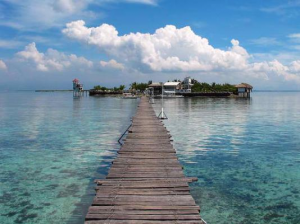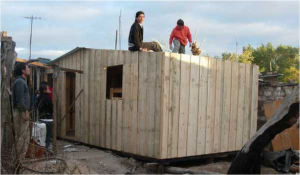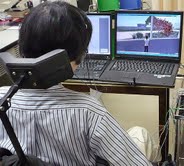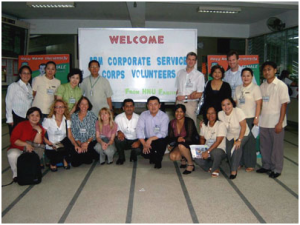Yesterday was an anxiously awaited day for all of those who are in the fight to end modern day slavery. Secretary of State, Hillary Clinton, formally announced the release of the highly anticipated Trafficking in Persons (TIP) 2011 report. The annual report consists of victim narratives, governmental responsibilities, progress made, and recommendations for improvement. Additionally, …
Tag: sustainable impact
Jun 29
School Ecotourism Police Force: Cute or Creepy?
Every now and then I read an article that I simply have to share with someone; so, today I share it with you! The article in this case is about Lapu-Lapu, a city in the Philippines which has taken an interesting route to promote ecotourism: recruiting students to act as ‘ecotourism police’ who report people they …
Jun 23
The Necessity of Training
Pulling out from Afghanistan without leaving behind a native security force capable of handling the job would be a mistake Towards the end of my second deployment to Iraq, I was offered a rather unique opportunity. Through a hookup from a fellow Arabic linguist, my coworkers and I were allowed to join a police training …
Jun 23
Opportunity in the Developing World
When someone thinks of an “underdeveloped” or “developing” country, it’s all too easy to envision an area that is lagging behind (both technologically and economically) the Western world. It’s common to think of these places as needing our help to catch up to the standards we set and to follow the trends that we start. …
Jun 22
Brilliant Partnership or Potential Disaster?
The University of Oregon and the Global Oregon Initiative recently announced an interesting—and controversial—partnership: a partnership with the government of Gabon. This one-of-a-kind cooperative agreement has a noble purpose: to establish joint research centers in Eugene and Libreville in order to study sustainability, economic development, and natural resource management. However, the union is problematic because of …
Jun 21
The white man’s burden
Leer la versión en Español Scarcity or inequality? We live in a world with economic inequalities, divided between the “developed” and the “developing” countries, the North and the South. As citizens of the world, we deal with those economic inequalities in different ways. Developed nations and individuals feel the need to carry on with the …
Jun 20
Second Life Offers Virtual Abled and Disabled Experiences
Some would scoff at the idea of living with an alternate identity in a virtual world, as in the popular Sims games, or the widely-played “massively-multiplayer online role-playing games” (MMORPG). However, since it was introduced in 2003, the online virtual world called Second Life has completely transformed self-expression. Because of its user-friendliness and a multitude …
Jun 20
The Nonprofit Disconnect, Part II
Last week, I wrote about how nonprofits should work together to make sustainable change. Rather than organizations focusing on specific issues individually, I think that establishing a type of “nonprofit team” to address multiple aspects of a complex problem could really make a huge impact. Theoretically, I really think this could work – but there …
Jun 20
International Corporate Volunteerism Partnership
On May 31st USAID announced a partnership with IBM and CDC Development Solutions, an NGO that focuses on international corporate volunteerism (ICV), which USAID believes will make ICV more effective and sustainable. The partnership spawned a new agency: The Center of Excellence for International Corporate Volunteerism (CEICV), which will be funded by USAID, IBM, and …
Jun 16
The Nonprofit Disconnect
Earlier this week, Ryan wrote about the difference between providing technical assistance to a one-dimensional problem and making a change that has a more sustainable impact. Digging a well in an area without access to clean water, for example, is a great solution to the simple problem of not having clean water. However, that one …












